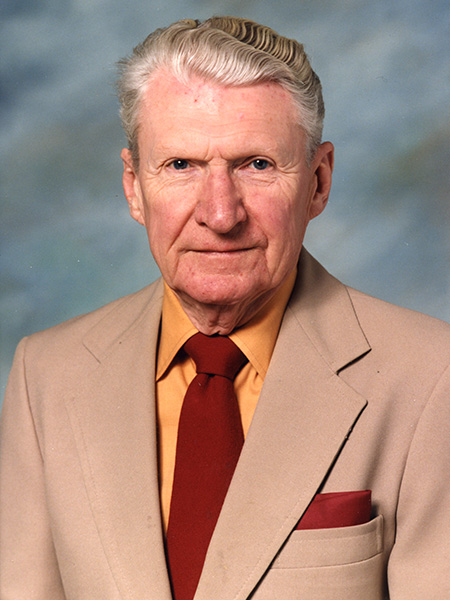Inventor of biomedical devices used on hundreds of thousands of patients

Leslie A. Geddes, the Showalter Distinguished Professor of Biomedical Engineering, arrived at Purdue in 1974 with a mission to help develop an organized biomedical engineering research center. That year, he became founding director of the Hillenbrand Biomedical Engineering Center. Geddes, an electrical engineer and physiologist, discovered the best places on the human chest for defibrillation or pacing – methods for restoring the proper rhythm of the heart. He obtained more than 30 patents related to treating diseases of the heart and lungs, and he trained an entire generation of biomedical engineers. Inventions and discoveries over his 50-year career include the first clinical electromyograph (EMG), a respiratory monitoring system for NASA, an energy-efficient miniature defibrillator, a regenerative tissue graft made from pig intestines that has been used by surgeons on thousands of patients, and a pacemaker that automatically increases a patient’s heart rate during exercise. He also invented a baby pacifier that delivers medicine. Geddes’ discoveries, licensed by such companies as Cook Biotech Inc., DePuy Inc., Eli Lilly and Company, and Hillenbrand, have generated tens of millions of dollars in royalties for Purdue, with one-third of those funds supporting other research to develop new technologies. Geddes officially retired from Purdue in 1991, when he was named a distinguished professor emeritus. He received a National Medal of Technology and Innovation in 2006 and the IEEE Edison Medal in 1994. Additionally, Geddes was inducted into the National Academy of Engineering in 1985 and received an Outstanding Contribution to Scientific Commercialization Award from Purdue in 2004.
